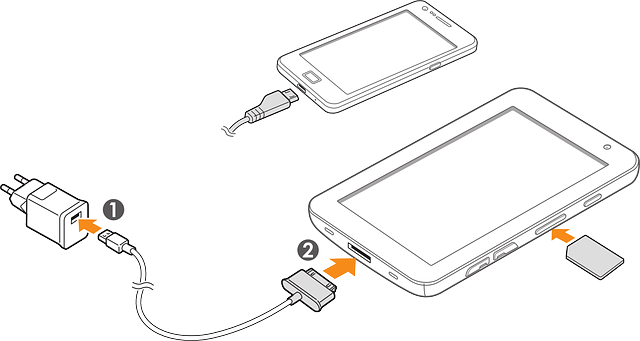In the digital age, the Telephone Consumer Protection Act (TCPA) protects North Dakotans from unwanted spam calls by restricting telemarketing without explicit consent. Specialized Spam Call law firms in North Dakota offer guidance and representation to ensure TCPA compliance and protect consumer rights. These firms navigate complex consent issues, document evidence, and guide clients through legal processes to stop unwanted calls and enforce TCPA regulations.
In Dickinson, North Dakota, as across the nation, the Telephone Consumer Protection Act (TCPA) safeguards residents from unwanted spam calls. This article delves into the crucial role of consent in TCPA cases, exploring how legal protections depend on clear definitions and proper documentation. We examine the impact of telemarketing laws, common challenges in proving consent, and essential steps to take after a violation through the lens of a North Dakota-based spam call law firm’s perspective.
Understanding TCPA and Its Impact on North Dakota Residents

In the digital age, the rise of spam calls has become a significant concern for residents across the nation, including North Dakota. The Telephone Consumer Protection Act (TCPA) is a federal law designed to protect consumers from unsolicited phone marketing and abusive call practices. This stringent legislation has had a profound impact on how businesses communicate with their customers, particularly in North Dakota, where residents now enjoy greater control over their phone lines.
The TCPA prohibits companies and individuals from making telemarketing calls without prior explicit consent, ensuring that North Dakotans are not bothered by unwanted calls. When it comes to spam calls, a law firm specializing in TCPA cases plays a crucial role in upholding these consumer rights. These legal experts help residents navigate the complexities of the TCPA, offering guidance and representation when their rights are violated by intrusive or unauthorized phone marketing efforts.
Definition of Consent in the Context of Telemarketing

In the context of telemarketing, consent is a crucial element in navigating the Telephone Consumer Protection Act (TCPA) and related legal issues. When it comes to spam calls, or unsolicited telephone marketing, understanding what constitutes consent is essential for both businesses and consumers alike. Consent, in this regard, refers to an individual’s voluntary agreement to receive telemarketing calls. It involves a clear and affirmative action from the caller, ensuring that the recipient has given permission for their phone number to be used in promotional or advertising purposes.
In North Dakota, as with many states, there are strict regulations surrounding consent to protect consumers from unwanted spam calls. The TCPA outlines specific guidelines, including requirements for obtaining verbal or written consent before placing automated calls or using prerecorded messages. A spam call law firm in North Dakota can provide valuable insights into these rules, helping businesses ensure their marketing practices comply with the law and respect consumer choices regarding telemarketing interactions.
Navigating Spam Call Laws: A Lawyer's Perspective

In the complex landscape of consumer protection, navigating spam call laws is a critical aspect of legal practice in North Dakota and across the nation. As a Spam Call law firm in North Dakota, we encounter clients who have fallen victim to unwanted telemarketing calls, often resulting in TCPA (Telemarketing Consumer Protection Act) violations. The TCPA establishes rules regarding consent for automated or prerecorded telephone calls, ensuring consumers’ privacy and autonomy.
Lawyers specializing in this area must possess a deep understanding of the nuances within the legislation. Consent is a cornerstone issue; obtaining it legitimizes marketing efforts while its absence can lead to significant legal repercussions. A careful examination of client interactions, call records, and documentation is essential to determine whether consent was granted freely and explicitly. This meticulous approach not only protects consumers’ rights but also guides businesses towards ethical marketing practices, fostering a more transparent and compliant telemarketing environment in North Dakota.
Common Challenges in Proving Consent in TCPA Cases

Proving consent in Telephone Consumer Protection Act (TCPA) cases can be a complex and challenging task for several reasons. One of the primary difficulties lies in the nature of telemarketing interactions, which often involve automated calls or pre-recorded messages, making it harder to establish explicit consent. Many consumers may not remember giving permission, especially if the call was made years ago, further complicating the process.
Additionally, the definition of consent under the TCPA is specific and stringent. Law firms in North Dakota specializing in spam call cases must navigate the legal requirements, such as documented evidence of the consumer’s agreement to receive calls or texts. Without clear and verifiable consent, a case may struggle to withstand scrutiny, emphasizing the need for meticulous record-keeping and detailed documentation throughout the interaction.
Protecting Your Rights: Steps to Take After a Violation

If you’ve experienced unwanted spam calls, it’s crucial to act swiftly. The first step is to document everything—note down the caller’s number, the date and time of the call, and any details about the message or interaction. Next, consider blocking the number using your phone settings. While this might not stop dedicated spammers, it can prevent further direct contact.
For a robust solution, consult a Spam Call law firm in North Dakota. They can guide you through the legal process, which may involve contacting the caller to demand cessation and documenting all interactions. If the violation persists, your attorney can help file a complaint with relevant authorities and represent you if the case proceeds to court, ensuring your rights under the state’s TCPA regulations are protected.






